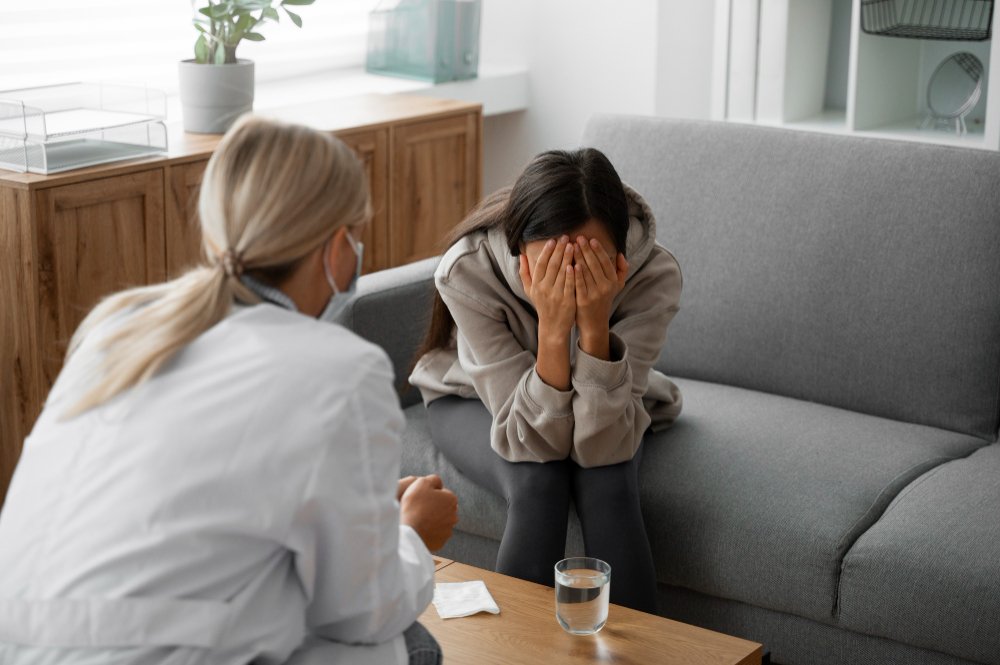- demo@example.com
- Lorem ipsum dolor sit amet consectetur.

Polycystic Ovary Syndrome (PCOS) doesn’t just affect your body—it deeply impacts your emotional and mental well-being. Many women and individuals with PCOS experience emotional struggles that are often overlooked or misunderstood.
Feelings of sadness, hopelessness, or lack of motivation are common in those living with PCOS. The ongoing battle with symptoms like infertility, acne, or weight gain can lead to persistent depressive thoughts that require attention and care.

Living with PCOS can mean living with constant worry. Concerns about health, appearance, fertility, and the unpredictability of symptoms often lead to heightened anxiety and stress.
Hormonal fluctuations—especially elevated androgens and insulin resistance—can contribute to irritability, emotional outbursts, or sudden changes in mood. These shifts can be confusing and difficult to manage without support.
Visible symptoms like unwanted facial/body hair, thinning scalp hair, or acne can severely affect self-confidence. Body image issues are common and can lead to social withdrawal or emotional distress.
Due to pressure around weight and insulin management, many individuals with PCOS develop unhealthy eating patterns, including binge eating or extreme dieting. This cycle can be emotionally draining and physically harmful.
Cognitive Behavioral Therapy (CBT) and other counseling approaches can help manage anxiety, depression, and body image concerns. Talking to a mental health professional is a powerful first step.
Regular exercise and a nutrient-rich diet improve not only physical health but also mood and energy levels. Movement releases endorphins that naturally support emotional balance.
In some cases, medication may help manage mood disorders. Hormonal treatments (like birth control or metformin) can also contribute to emotional stability by balancing hormone levels.
You are not alone. Support groups—whether online or local—connect you with others who understand what you're going through, offering shared experiences and emotional validation.
Mindfulness practices like yoga, meditation, journaling, or deep breathing can help reduce stress hormones and bring calm to your daily life.